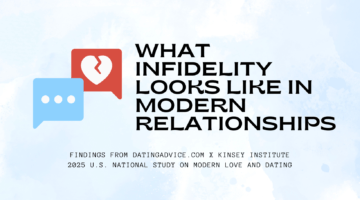We Tend To Select Romantic Partners Who Look Like Our Parents
April 23, 2016 by Justin Lehmiller
Throughout the animal kingdom, scientists have found that early caregiving experiences shape later patterns of sexual attraction.
For example, if you ever took an Introductory Psychology course, you probably learned about Konrad Lorenz’s discovery that baby geese “imprint” on the first moving object they see shortly after birth, meaning they treat that object as if it were their mother and start following it around [1]. Perhaps your textbook even included some adorable photos of Lorenz being trailed by a gaggle of geese that had imprinted on him. However, what’s even more fascinating than this is that, when they grew up, these geese would attempt to mate with human men that physically resembled Lorenz himself—in this case, that meant white dudes with big white beards!
This isn’t a phenomenon unique to animals, though—something similar happens in humans. I know some of you will find this creepy, but humans have a tendency to select romantic partners who physically resemble their childhood caretakers. The preferred theory is that, as children, humans experience an imprinting-like process in which the physical traits of (usually) one’s opposite-parent form a mental template that is later used for selecting mates in adulthood.
Here’s a look at some of the evidence in favor of this idea:
- A 2013 study found that people who were born to older parents (mother and/or father) reported greater attraction to older partners as adults.
- A 2003 study found that the hair and eye color of people’s opposite sex parents were related to the hair and eye color of their romantic partners.
- A 2012 study found that the height of people’s opposite sex parents was associated with the their height of their romantic partners.
- A 2010 study found that women selected romantic partners who had similar amounts of body hair to their fathers.
- A 2004 study found that women who had been adopted as children had a tendency to select husbands who physically resembled their adoptive fathers.
- A 2002 study found that men tended to select wives who physically resembled their mothers.
Interestingly, the last two studies both found that the nature of the relationship people had with their parents mattered. Specifically, people who had more positive relationships with their parents were the most likely to select partners/spouses who looked like their parents.
With all of that said, there are a few caveats to keep in mind here. First, we can’t say for sure whether the above effects are truly a result of sexual imprinting. Another possibility is that this is simply a byproduct of mere exposure (i.e., the idea that repeated exposure to a given stimulus, such as persons of older age, increases familiarity and liking for that stimulus). Yet another potential explanation is that we engage in phenotype-matching (i.e., the idea that we are drawn to partners who physically resemble us—and because we tend to resemble our parents, we also end up with a preference for people who look like our parents).
Second, although there’s an association between the traits of our parents and the traits of our partners, most studies have found relatively small correlations. Thus, while our parents may very well help to shape what we find attractive in others, there’s definitely a lot more to the story than this.
Want to learn more about Sex and Psychology? Click here for previous articles or follow the blog on Facebook (facebook.com/psychologyofsex), Twitter (@JustinLehmiller), or Reddit (reddit.com/r/psychologyofsex) to receive updates.
[1] Lorenz, K.Z. (1970). Studies in Animal and Human Behavior, Vol. 1. Cambridge: Harvard University Press.
Image Source: 123RF/Marek Uliasz

Dr. Justin Lehmiller
Founder & Owner of Sex and PsychologyDr. Justin Lehmiller is a social psychologist and Research Fellow at The Kinsey Institute. He runs the Sex and Psychology blog and podcast and is author of the popular book Tell Me What You Want. Dr. Lehmiller is an award-winning educator, and a prolific researcher who has published more than 50 academic works.
Read full bio >


